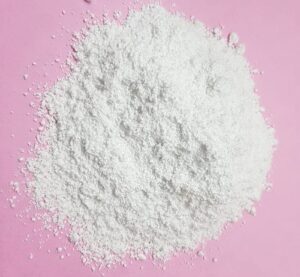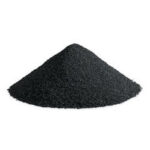Magnesium Silicate (Grade A1)
We are the stalwarts in the domain of manufacturing, supplying, wholesaling, and exportingMagnesium Silicate (Grade A1) These flavor grade chemicals are processed using pure and accurate ingredients that are procured from reliable and trusted vendors of the market. Our range is available in the market at leading prices in packs of different quantities.
Magnesium Silicate, often referred to as talc, is a naturally occurring mineral that has a wide range of uses and applications in various industries, including construction and others. Grade A1 typically represents high-quality, pure talc.
Here are some common uses and applications of magnesium silicate (talc) in these industries:
Construction Industry:
Ceramic Tiles: Talc is used as a filler and processing aid in the production of ceramic tiles, helping to improve their mechanical properties and reduce defects.
Paints and Coatings: Talc can be used as an extender in paints and coatings, enhancing the opacity and matting characteristics of the finished product.
Sealants and Adhesives: Talc is used to improve the rheological properties and reduce cost in sealants and adhesives formulations.
Roofing Materials: Talc is added to roofing materials to enhance their resistance to weathering and UV radiation.
Plastics and Polymers Industry:
Polymer Compounding: Talc is used as a reinforcing filler in thermoplastics to enhance stiffness, dimensional stability, and heat resistance.
Automotive Parts: Talc is added to plastics used in automotive parts to reduce weight, improve impact resistance, and reduce production costs.
Pharmaceuticals:
Talc is used as an excipient in pharmaceuticals, providing a lubricating and anti-sticking agent in tablet manufacturing.
Personal Care and Cosmetics:
Talc is a common ingredient in cosmetics, where it is used in products such as face powders and baby powders for its softness and ability to absorb moisture.
Paper and Pulp Industry:
Talc is employed as a filler in paper manufacturing to enhance opacity, smoothness, and printability of paper products.
Food Industry:
In the food industry, talc is used as an anti-caking agent in powdered foods, such as spices and seasonings.
Agriculture:
Talc is used as a carrier for agricultural pesticides and herbicides, helping to ensure even distribution on crops.
Cosmetic Talcum Powder:
Talcum powder, which is made from talc, is used for personal hygiene and skincare. It is often applied to absorb moisture and reduce friction on the skin.
Oil and Gas Industry:
Talc is used as a weighting agent in drilling fluids and as a lubricant in the drilling process.
Rubber Industry:
Talc is added to rubber compounds to improve processing properties and increase stiffness and resistance to environmental factors.
It’s important to note that the grade and quality of talc can vary, and specific applications may require different grades of talc to meet their particular requirements. Additionally, the use of talc should be in compliance with relevant regulations and safety standards, especially in industries like pharmaceuticals and food where product safety is a priority.






